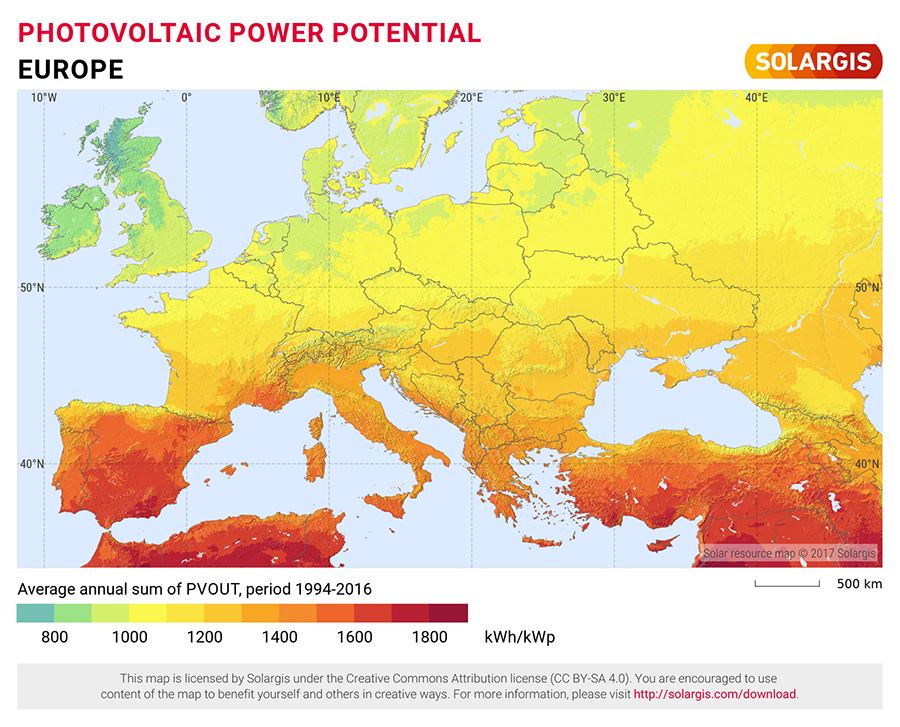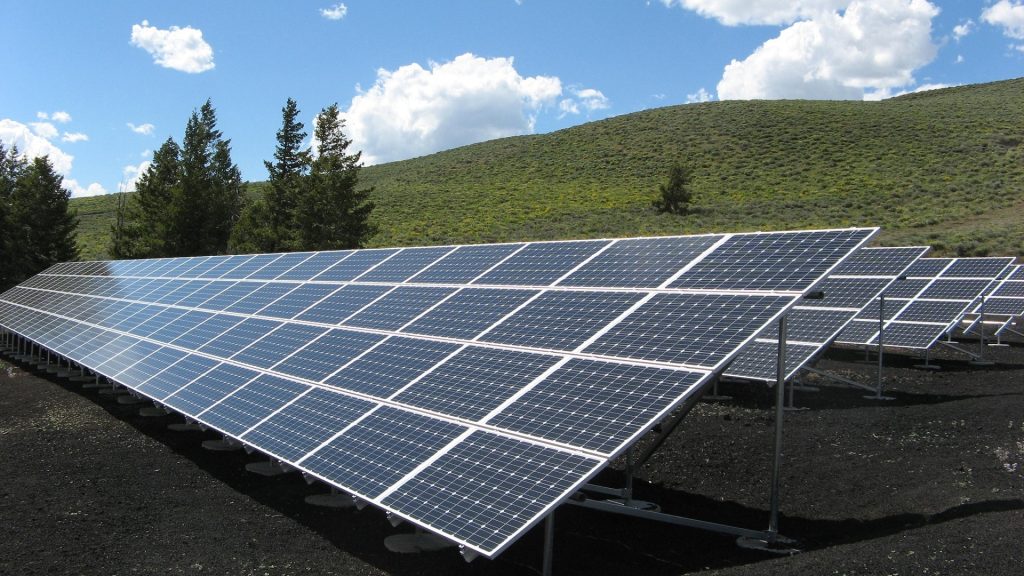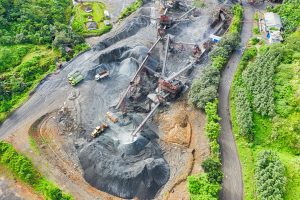In this article, the legal conditions and methods of electricity generation in the context of solar energy and license will be discussed.
INTRODUCTION
Solar energy is a clean and economical source of input, such as geothermal, wind, wave and other renewable energy sources. Today, this energy source, which is spreading rapidly in Europe, Africa and North America, is increasing its attractiveness especially in countries with high temperature and sunny days during the year.
At this point, the fact that the number of sunny days during the year is high and that they have regions suitable for the use of solar farms due to their geographical structure put the countries around the Mediterranean region in a much more advantageous position compared to other parts of Europe in terms of the use of this resource. Indeed, according to a study conducted by SOLARGIS between 1994 and 2016, Southern and Southeastern European countries are in a much more advantageous position compared to other countries in the region in terms of solar energy potential and technology.

SOLAR ENERGY AND LICENSE
In this context, Turkey has the potential to gain an important place in the world energy sector in terms of the potential of this energy source, surpassing other European countries.
The Directives and steps taken in this regard in recent years are promising in terms of clean and economical energy.
SOLAR ENERGY GENERATION LICENSE
Solar energy is ultimately a source of energy and its use is licensed. So much so that there are incentives and government supports in terms of renewable energy sources, but the legislator and related institutions have put forward certain conditions in order to generate from these sources. The most fundamental of these conditions is the generation license.
Namely, with the Electricity Market Code No. 6446, it is obligatory to obtain a license for electricity generation, transmission, distribution, wholesale or retail sale, electricity import and export and market operation activities in the market. In this context, a generation license must be obtained from the Energy Market Regulatory Board (EMRA) for electricity generation plants based on renewable energy sources, by those who want to operate in the market and whose installed power[1] is greater than 5 MW.
Pre-license is required for electricity generation activity. The investor is required to obtain permits, approvals, licenses and similar documents arising from the legislation within the pre-license period to be determined according to the source type and installed capacity.
The duration of the pre-license is determined by the Board decision, not exceeding thirty-six months, excluding force majeure, depending on the resource type and installed power of the generation facility project subject to the pre-license application.
The investor, who has obtained the necessary permits and approvals within the pre-license period, must obtain the generation license from EMRA in order to start the construction of the electricity generation facility. The license is granted for a minimum of ten and a maximum of forty-nine years, taking into account the nature of the activity. However, the duration of the generation license granted under the Provisional Article 12 of the Code is limited to the duration of the relevant existing contract. The duration of the generation license granted for RERA (Renewable Energy Resource Area) is limited to the period determined within the framework of the RERA Directive[2].
Since solar energy is a renewable energy source, it will be subject to this license process.
HOW TO GET A SOLAR GENERATION LICENSE?
As mentioned above, legal entities are required to have a certain license procedure and certain qualifications for electricity generation. Namely, legal entities who want to have electricity generation license must be;
– established as a Joint Stock or Limited Company established in accordance with the Turkish Commercial Code,
– and in case of incorporation as a joint stock company, all of their shares, excluding those traded in the stock exchange, must be registered in accordance with the capital market legislation.
The pre-license process comes at the beginning of the required license process.
PRE-LICENSE PERIOD
The legal entity willing to operate in the electricity market, before starting its activities, must obtain a separate license for each facility, except for the exceptions within the scope of the Electricity Market License Directive (which will be mentioned below), and in case the said activities will be carried out in more than one facility.
Depending on the connection point and the physical condition of the facility, the Energy Market Regulatory Board may evaluate the units subject to more than one project within the scope of a single pre-license or license. On the other hand, generation facilities based on the same type of renewable energy source installed on the surfaces of more than one building or their outbuildings can be evaluated within the scope of a single pre-license or generation license, provided that they are connected to the system from the same point.
Legal entities willing to engage in generation activities will be able to apply to the Energy Market Regulatory Board by submitting the documents in the “List of Information and Documents to be Submitted in the Pre-License Application” together with the “Pre-License Application Petition” attached to the Directive, in order to obtain a pre-license. Explanations on the information and documents to be added to the application petitions; included in that list.
You can access this list of all required documents on EMRA‘s website.
The chairman and members of the board of directors, of the natural or legal person or persons who have a direct or indirect share of 10 percent or more, and 5 percent or more in publicly traded companies, including those who resigned within one year before the license cancellation date, of the legal person applying for an Associate License, must not be prohibited within the scope of the eighth paragraph of Article 5 of the Electricity Market Code.
In applications for associate license, a bank letter of guarantee is required per MW in the amount determined by the decision of the Energy Market Regulatory Board, in accordance with the sample determined by the Board decision and addressed to EMRA. The upper limit of the bank letter of guarantee calculated by this method is determined by the Board decision, provided that it does not exceed 5 percent of the total investment amount foreseen by the Board for the production facility. The amount of the bank letter of guarantee to be submitted to the Agency within the scope of the Regulation can also be provided with the bank letters of guarantee obtained from more than one bank.
It is obligatory to submit the company’s articles of association stating that the minimum capital of the company has been increased to 5 percent of the total investment amount stipulated by the Board for the production facility, and to 1 percent for the pre-license applications for the establishment of a nuclear energy-based generation facility.
Only 10 percent of the pre-license fee is collected from legal entities that apply for a pre-license to establish a production facility based on domestic natural resources and renewable energy resources, upon submission of a document showing that the pre-license fee has been deposited into the Agency’s account.
Accordingly, the company, which has applied for a pre-license to obtain a solar energy production license, will be able to initiate the solar energy production license process by giving at least one-tenth of the pre-license fee of 32,200 Turkish Liras (depending on the installed power, varying between 32,200 Turkish Liras and 1,563,700 Turkish Liras).
Finally, it should be noted that legal entities wishing to generate electricity based on solar energy must initiate this process within the last 5 working days of October of each year in order to apply for a pre-license.
In addition, at least one year of solar measurement data of the last three years must be submitted when applying. These measurements will vary according to the region where the power plant will be built and will be evaluated by the Energy Market Supervisory Board within the scope of TEİAŞ’s (Turkish Electricity Transmission Inc.) energy capacity opinion for the next ten years and the Ministry of Energy and Natural Resources’ review of the application.
In general, the pre-license process and conditions are as follows, you can contact our office’s energy department for more detailed information.
LICENSE
Legal entities wishing to operate in the market apply to the Board by submitting the “License Application Petition” in Annex-1 and the “List of Information and Documents to be Submitted in License Application” put into effect by the Board’s decision, in order to obtain a production license.
You can access these documents from EMRA’s website.
License application requirements are in line with pre-license requirements. Legal persons wishing to obtain this license must be a Joint Stock or Limited Company established in accordance with the TCC (Turkish Commercial Code). The other conditions above also apply here.
The legal entity holding a pre-license, who wishes to apply for a generation license, applies to the Board for a generation license within the pre-license period, as specified in the Regulation, provided that it completes its obligations under the pre-license. If the pre-license holder does not apply for a production license before the pre-license period expires, the obligations to be fulfilled during the pre-license period are deemed not to have been fulfilled.
In order for this process to proceed in the most healthy way, it is useful to get help from a law firm specialized in this field, as well as from engineering companies. Because deadlines and submission of petitions to the institution and even following the documents are a tedious process and professional help is essential.
After this point, legal entities that have completed all these processes will be able to establish solar power plants (SPPs) in the regions they have determined and generate electricity.
IS NON-LICENSED ELECTRICITY GENERATION POSSIBLE?
Energy production based on Renewable Energy Resources is tried to be encouraged with certain incentives and supports. Especially recently, the establishment of self-sufficient enterprises in the context of energy has become one of the main goals of the state and EMRA.
Based on this goal, the clean energy potential will be used to the maximum with the self-sufficient businesses that need a distribution or transmission network the least, and the energy expenses of the businesses will be minimized accordingly.
At this point, the following question comes to mind: In line with this goal, is production possible without the license process?
With the latest regulations, it has become possible for businesses to meet their energy needs without a license by producing based on renewable energy sources. From now on, businesses will be able to set up solar power plants for their own industrial facilities in factory areas or regions where the cost is the least and benefit from this clean energy.
The conditions required to generate unlicensed electricity are listed in the regulation as follows:
– Emergency groups,
– Production facilities operating without any connection with the transmission or distribution system,
– Generation facilities based on renewable energy resources with an installed capacity of one megawatt or up to the upper limit of installed capacity determined by the President within the framework of Article 14 of the Law,
– Generation facilities based on renewable energy resources, which use all of the energy they generate without giving it to the transmission or distribution system, and whose production and consumption are at the same measurement point,
– Cogeneration facilities in the category that provide the efficiency value to be determined by the Ministry,
– Microcogeneration plants,
– Production facilities established to be used in the disposal of municipal solid waste facilities and treatment plant sludge,
– Production facilities based on hydraulic resources, on water transmission lines and waste water transmission lines operated by municipalities, by legal entities, more than half of which directly or indirectly belongs to the municipality, if there is technical means and if approved by GDSHW,
-Electricity subscription is made by the General Directorate of State Hydraulic Works, in order to meet the electricity needs of the facilities for agricultural irrigation purposes belonging to the General Directorate of State Hydraulic Works or irrigation unions, provided that the installed capacity is limited to the contract power of the agricultural irrigation facility in the connection agreement, and the contractual power of the facilities for more than one facility. or a production facility based on renewable energy sources, established and operated by irrigation unions with the permission of GDSHW.
– Generation facility based on renewable energy resources established at the same or different measurement point with the consumption facility, provided that it is twice the contract power in the connection agreement and other persons are limited to the contract power in the connection agreement, by municipalities and their subsidiaries, industrial facilities and agricultural irrigation facilities,
– Production facilities established with the approval of GDSHW on immovables for which irrigation unions are responsible for operation, maintenance, repair and management, and on other immovables owned or under the control of GDSHW,
– And renewable energy generation facilities established at the same or different measurement point as the consumption facility, provided that it is limited by the contract power,
– Production facilities to be established if the legal entities established by the special provincial administrations have the technical means on the water source of the pressure piped irrigation network or classical canalized networks operated by the special provincial administrations and the network that serves only the purpose of irrigation and is approved by GDSHW.
– Production facilities to be established if the legal entities established by the special provincial administrations have the technical means on the water source of the pressure piped irrigation network or classical canalized networks operated by the special provincial administrations and the network that serves only the purpose of irrigation and is approved by GDSHW.
Those listed above are exempt from obtaining pre-licenses and licenses and establishing a company. In other words, the persons who wants to make production within the framework of these articles does not have to be a legal person, he/she can be a real person.
In this context, enterprises whose energy consumption by their factory or enterprise, which is a consumption facility, will be the same as the electrical energy generated from SPP, are exempt from the license process.
In addition, if the generation facility does not exceed 5 MW in terms of installed power, there will be no obligation to obtain a license for the SPP to be installed.
WHY SHOULD BUSINESSES ESTABLISH SPP?
In these days when energy prices are increasing day by day, unfortunately it has become very costly to provide energy input from traditional fossil fuel and derivative energy sources. As a matter of fact, Turkey’s external dependence on fossil fuel energy is one of the factors that increase the cost of these inputs even more. At this point, installing a SPP in our country, which has plenty of solar radiation and sunny days throughout the year, will reduce costs and maximize the profit margin of companies.

If the average electricity bill in a medium-sized consumption facility (factory, operation) is between 250,000 and 400,000 Turkish Liras and it is 7.5 million Turkish Liras on an annual basis, the establishment of a SPP as a production facility will cost you the most with an investment cost of approximately 2.5 million dollars. The amortization of your expenses will be provided within few years.
In addition, the use of fossil fuels should be minimized due to reasons such as climate change and global warming. Companies that take steps and advance in this field in line with the EU’s “0 Emission” targets will be far ahead of their competitors in the future. In this context, companies that are leading in the fight against climate change will both invest in a greener future and achieve success in this area.
Click on the link to read other articles.
Legal Intern Ömer Faruk KILIÇ
Att. Muhittin KURNAZ
Follow us on Social Media:
https://www.facebook.com/kapitalhukuk
https://www.instagram.com/kapitalhukuk/
https://tr.linkedin.com/company/kapi%CC%87tal-hukuk
[1]The maximum capacity that a power plant can handle, a power grid can carry, an installation can handle.
[2]Regulation regulating the procedures and principles regarding the determination, grading, protection and use of renewable energy resource areas suitable for electricity generation in public and treasury lands.








